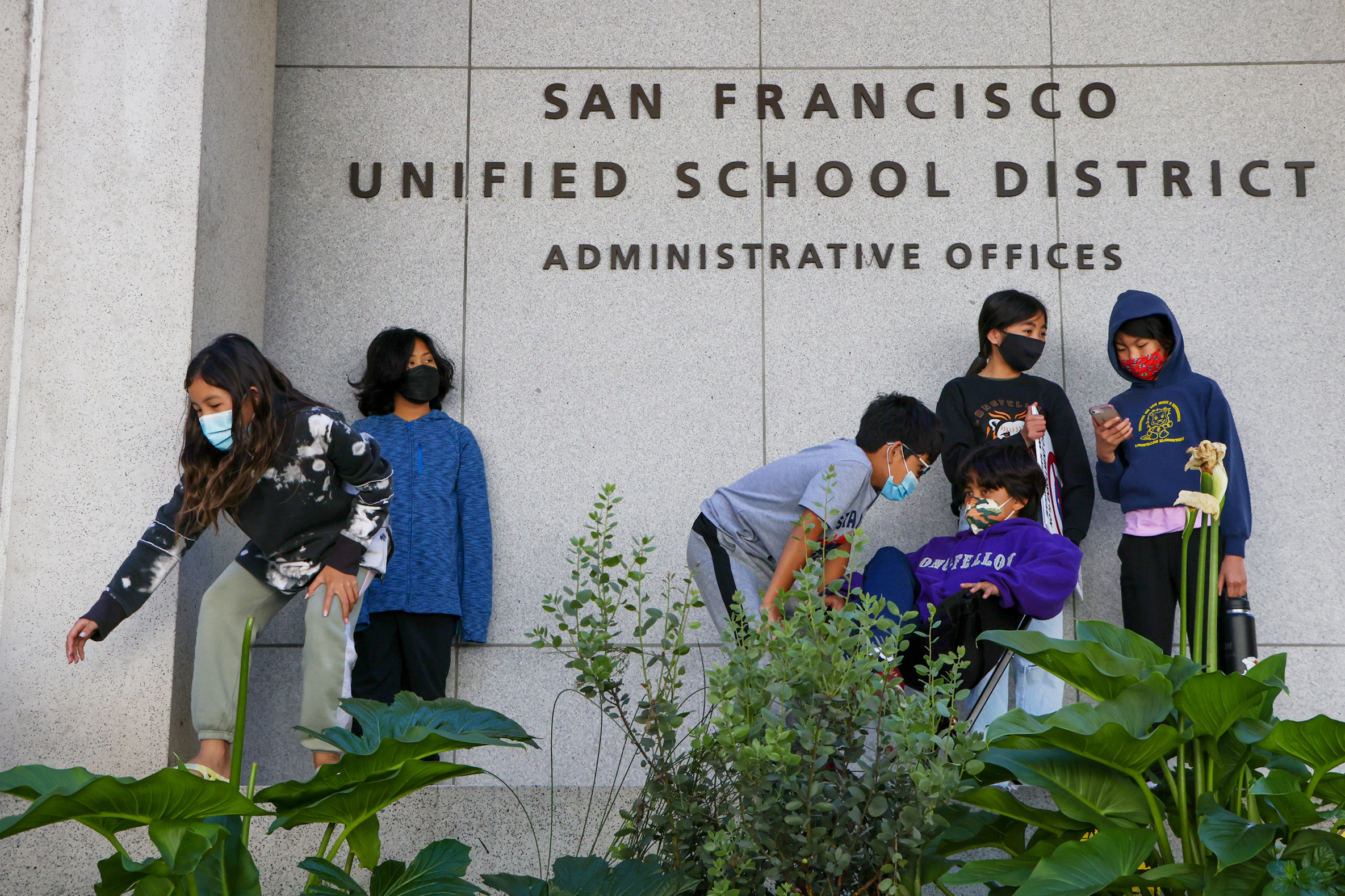The historic San Francisco Board of Education recall earlier this year made national headlines for the way the ousted commissioners seemed more interested in political causes like renaming schools than in educating students during the pandemic—and were harshly rebuked by San Francisco voters as a result.
But the grassroots energy behind the recall runs much deeper, and is about far more than progressive politics run amok. It is rooted in a parent-led movement to reform and rejuvenate San Francisco’s public schools, motivated by the drive to understand why SFUSD has produced some of the worst educational outcomes in California among large urban districts.
The success of the recall led to the temporary appointment of three new members to the Board of Education. Now the people of San Francisco must decide whether to keep the appointees for a full four-year term, or replace them. Voters who want to choose wisely in the upcoming election need to learn more about the movement and the analysis that underlies it.
An excellent place to start, for those willing to invest the time, is SFEDup substack. It is run by Paul Gardiner, the parent of a Lowell student. He has produced an extraordinary set of essays, informed by deep data analysis, that cover a range of topics such as educational outcomes, fiscal management and demographic trends. The overarching theme that emerges is that although SFUSD is poorly run, there is huge potential for improvement if its leaders make decisions informed by data instead of ideology.
There’s also the work being done by various volunteer groups that have emerged over the last two years. They have different areas of focus—SF Guardians (formerly Recall SF School Board) focuses on school board politics, SF Parent Coalition focuses on parent organization and Families for San Francisco (which I currently lead) focuses on policy analysis—but all three groups support the broader SFUSD reform agenda.
A key piece of policy analysis by Families for San Francisco is Inequity in Numbers, published in October 2021. SFUSD had changed its math curriculum in 2014 to delay teaching Algebra 1 from 8th to 9th grade, and to mandate all students take the same set of courses from 8th to 10th grade. SFUSD claimed substantial equity benefits from the changes, but these claims were unsubstantiated. Even worse, the changes created a new set of inequities that likely caused declining enrollments of Black and brown students in Algebra 1 by the end of 10th grade.
Noted education scholar Tom Loveless published an excellent summary of Inequity in Numbers, cataloging both the key findings and the poor state of math education at SFUSD overall. Before the Inequity in Numbers report was published, the previous draft of the California Mathematics Framework had proposed delaying algebra until 9th grade statewide; after the report was published, the most recent draft was revised to remove its glowing references to SFUSD and make the delay of algebra until 9th grade optional.
SFUSD is one of the lowest-performing districts in California for 3rd-grade reading proficiency, which has been shown to correlate with worse educational and career outcomes later in life. (And since California is one of the lowest-performing states in the country for 3rd-grade reading, that means San Francisco is near the bottom nationwide.) While this issue transcends dyslexia and other reading differences, many local San Francisco parents found common cause with the dyslexia community to advocate for reform.
Thanks to these efforts, the last two years have seen substantial progress in getting SFUSD to acknowledge the problem, although they have yet to embrace a comprehensive reform agenda. After the recall, the new school board produced a draft set of Vision, Values and Goals with improved 3rd-grade reading levels specifically listed as a priority.
Despite being one of the best funded districts in California—thanks to the generous level of support it receives from San Francisco taxpayers—SFUSD faces a structural budget deficit, due mainly to long-term fiscal mismanagement, and the money woes have led the state to intervene with the potential of state takeover if results do not improve. Local activists such as columnist Carol Kocivar (a former President of the California State PTA) and Twitterer Beth Kelley (a lawyer and SFUSD parent) have focused on analyzing and explaining these fiscal issues to the community.
Two of the three Mayoral appointments to the Board of Education, Lainie Motamedi and Ann Hsu, were active in the reform movement before being tapped by the mayor. Motamedi was co-chair of the Community Advisory Committee (known as PEEF-CAC), which oversees the $80 million Public Education Enrichment Fund, where she developed and delivered a set of recommendations for reform. Hsu was chair of the Citizens’ Bond Oversight Committee (known as CBOC), which oversees SFUSD’s $745 million School Facilities Bond Program, where she developed and delivered a set of recommendations for reform.
Bureaucracy moves slowly—especially at SFUSD!—and the recommendations have not yet been fully implemented. But now that Motamedi and Hsu sit on the Board of Education—joined by Lisa Weissman-Ward, who shares their desire to focus on student outcomes and effective management—the parent community has reason to be optimistic that comprehensive reform may finally be possible across the whole range of fiscal and educational issues covered above.
